Tiny Tilos, in the Dodecanese, is a pioneering nature reserve. Now, Greece’s ‘green island’ is set to be powered by renewable energy
You’re more likely to run into friendly partridges, rare orchids and endangered eagles than people as you trek around Tilos. The entire Dodecanese island is a nature reserve, with more than 150 species of resident and migratory birds, over 650 plant varieties, and a permanent population hovering around 500. Tilos owes its extraordinary biodiversity to a network of underground springs that feed five wetlands – but also to the late mayor, Tassos Aliferis, a committed environmentalist who earned Tilos its reputation as “Greece’s green island”.
Aliferis banned hunting in 1993. (He also conducted the first same-sex marriages in Greece in 2008 long before they became legal in 2015.) The current mayor, Maria Kamma, continues to champion sustainable development, and human rights. She has extended an open invitation to refugee families to settle on Tilos, working with the NGO SolidarityNow and the UNHCR to establish sheltered accommodation, language classes and mentoring schemes to help asylum-seekers set up organic farming businesses in partnership with locals.
“We want to revive traditions that were dying out due to a dwindling population, like making cheese and gathering medicinal herbs,” says Kamma. “By integrating refugees, we can boost the local economy and encourage eco-tourism.”
Soon Tilos could become even greener: it’s set to be the first island in the Mediterranean powered by wind and solar energy. The island currently relies on oil-based electricity from neighbouring Kos, via a submarine cable that is vulnerable to faults. Power cuts are frequent. By installing a single wind turbine and small photovoltaic park, Tilos is creating a hybrid micro-grid that will generate and store energy. Installation is under way and an 18-month pilot begins in September, as part of a €15m project largely funded by the European commission. Eventually, Tilos could export excess power to Kos, and the goal is to roll out similar projects on other small islands in Europe.
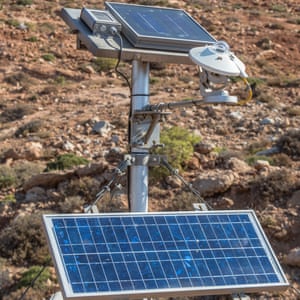
Financial support has also been provided for Tilos Park, a non-profit residents’ association set up to protect and promote the island’s natural and cultural heritage, and upgrade the Information Centre, where visitors can pick up maps of nature trails, mountain bike routes, and the best spots for sighting rare birds, or sign up for canoe and kayak trips. It’s hoped that knock-on effects will include increased visitor numbers – which currently stand at 13,000 per year – particularly among eco-minded travellers.
“Tilos has many loyal ‘fans’ who’ve come every year for 30 years,” says Kamma. “Now we’re getting a lot more interest from young people who have heard about Tilos because of the renewable energy project. They like what we are doing and want to support the island.”
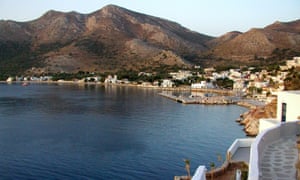
Kamma also hopes the positive publicity will help generate additional funding to install solar-powered street lighting, introduce electric bicycles and motorbikes for municipal staff, and charging stations for electric cars.
“Usually it’s hard for a tiny island community to break with tradition, but on Tilos we’ve always welcomed alternatives,” she says. “If we can do it, anyone can.”
Since you’re here …
… we have a small favour to ask. More people are reading the Guardian than ever but advertising revenues across the media are falling fast. And unlike many news organisations, we haven’t put up a paywall – we want to keep our journalism as open as we can. So you can see why we need to ask for your help. The Guardian’s independent, investigative journalism takes a lot of time, money and hard work to produce. But we do it because we believe our perspective matters – because it might well be your perspective, too.
I appreciate there not being a paywall: it is more democratic for the media to be available for all and not a commodity to be purchased by a few. I’m happy to make a contribution so others with less means still have access to information. Thomasine F-R.
If everyone who reads our reporting, who likes it, helps to support it, our future would be much more secure.



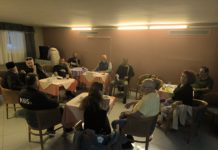
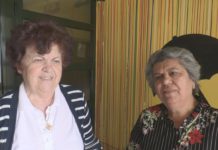

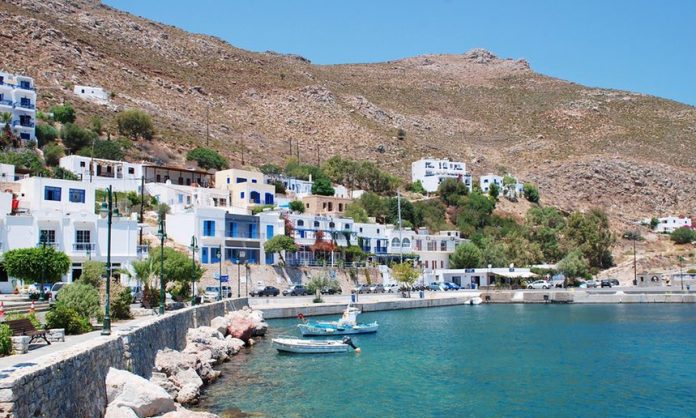


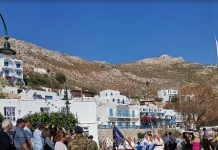
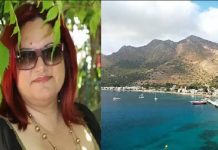
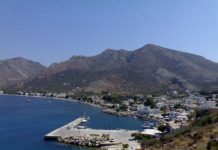

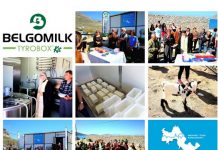
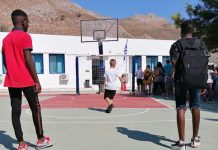

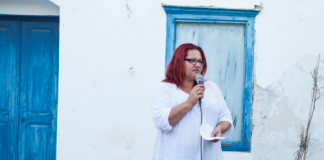
Yiati oi Kriti kai alloi nisia den efarmagei solar power. LEFTA IPARXEI